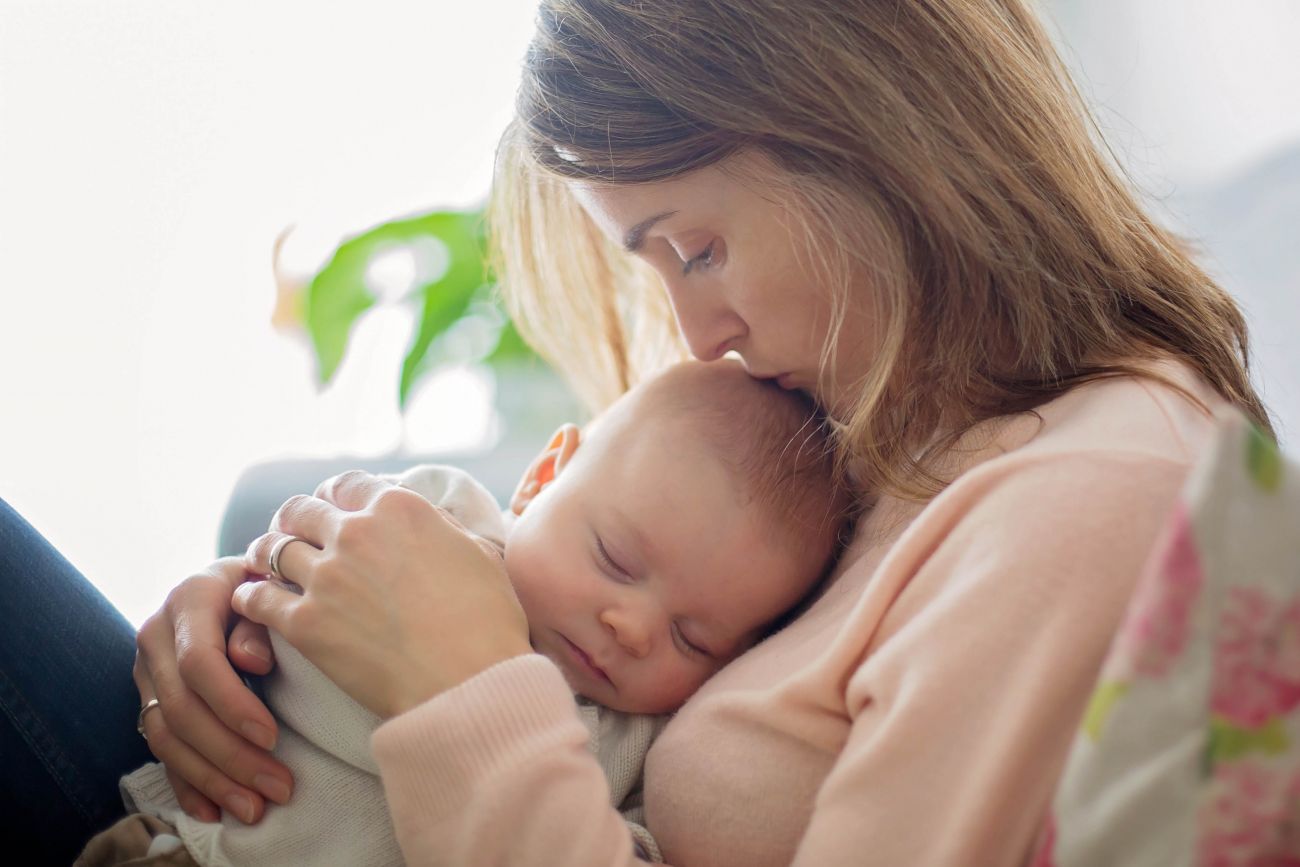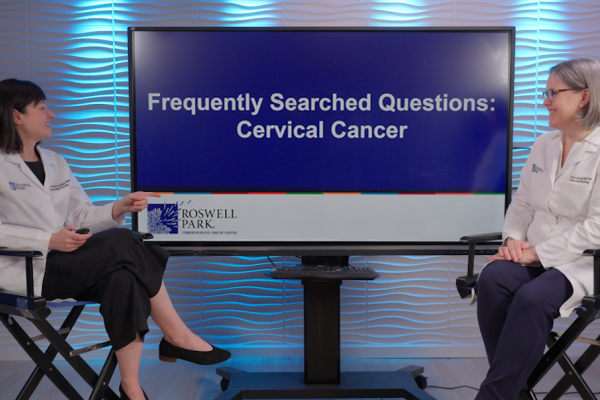Cervical cancer is frequently diagnosed in young women, and a very important question many women receiving this diagnosis have is how this will affect their fertility and ability to carry a pregnancy.
"Your ability to become pregnant and carry a pregnancy will vary depending on what type of treatment you receive for your cervical cancer," says Katherine LaVigne Mager, MD, Assistant Professor of Oncology at Roswell Park Comprehensive Cancer Center. "Early-stage cervical cancers can often be treated with surgical approaches that do preserve your ability to become pregnant and carry a pregnancy. If you require a hysterectomy or radiation, you would not be able to. However, there are still options through assisted reproductive technology that could allow you to have a biological child."
Fertility sparing options are primarily available for women who are diagnosed with early-stage disease, or disease that is still small and confined to the cervix. Two examples of treatment options that your doctor may recommend are cold knife cone biopsy and radical trachelectomy. In a cold knife cone biopsy, only the portion of the cervix where the cancer is located is removed. If the outer edges of the biopsy contain negative margins (healthy, non-cancerous cells) then no further cervix needs to be removed.
With a trachelectomy, the majority of the cervix is removed, but the remainder of the uterus is left in place. “The lower uterine segment (lower portion of the uterus that connects to the cervix) is left in place and what’s known as a cerclage or reinforcing stitch is placed in this portion of the uterus to help maintain the pregnancy,” says Dr. Mager. “It is important that you are followed closely by an obstetrician familiar with this procedure during pregnancy as you are at higher risk for some pregnancy complications and will require a C-section for delivery."
Never miss another Cancer Talk blog!
Sign up to receive our monthly Cancer Talk e-newsletter.
Sign up!If cervical cancer is found at a late stage, the recommended treatment would likely include a hysterectomy, a surgical procedure that removes all of the uterus and cervix, and potentially chemotherapy and radiation treatment as well. Through assisted reproductive technology, women who undergo hysterectomy or receive chemo/radiation could still have a biological child. This would be through the process of oocyte preservation (egg freezing) or In Vitro Fertilization and a gestational carrier (surrogate).
Patients at Roswell Park can discuss their options with a specialist prior to their cancer surgery through our Oncofertility Program. “Patients that require hysterectomy can still have biological children but would need a surrogate mother for the pregnancy. The Oncofertility program can help patients learn their options and connect them with a fertility center to store eggs and preserve fertility,” says Director of the Oncofertility Program, Denise Rokitka, MD, MPH.
Any patient of reproductive age can be referred to the Oncofertility Program.
A consultation with the program will can include:
- Discussing fertility preservation
- Reviewing planned cancer treatment
- Identifying risks for infertility
- Reviewing costs and options for fertility preservation
- Communicating with primary oncology team
If referred for fertility preservation, the Oncofertility program will act as a liaison between Buffalo IVF Associates and your primary oncology team.




